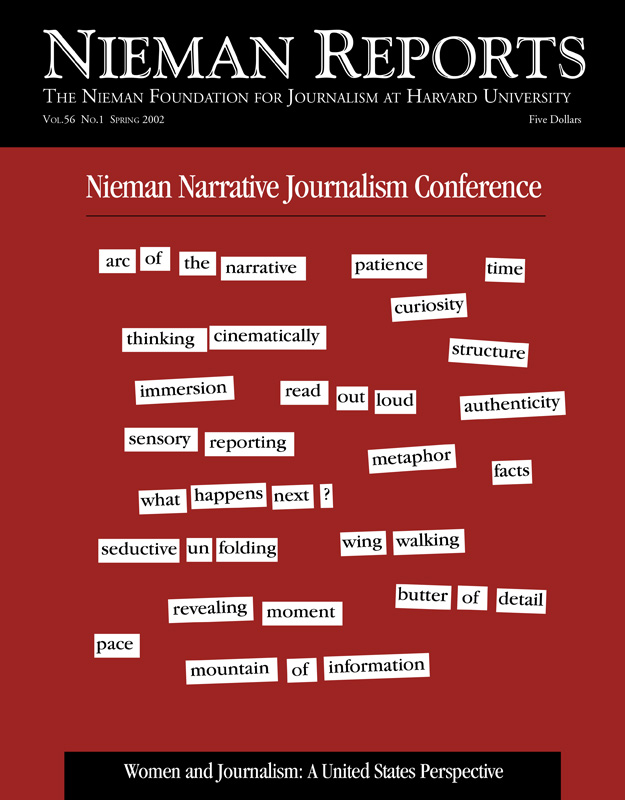“What Price the News” was written a couple of years ago but certainly resonates today because of the subject matter. The writer is a young man named Ian Stewart. And at the beginning of the story, Ian is drifting in and out of consciousness. When he’s conscious, he’s in pain. Something terrible has happened to him. He doesn’t know what it is. This first-person story follows Ian as he struggles to survive this terrible injury, to survive the surgeries and the medical treatment that is required and to understand what happened. He tries to get his life back.
Ian was shot in the head, and his best friend was shot dead, covering the war in Sierra Leone for The Associated Press a couple of years ago. The story has a great deal of talk in it, about the macho work of the foreign correspondent, about the importance of getting the news out to the public; all the great, heroic things that we’d like to think that we do as journalists. He ends the story like this:
I think it works because you don’t quite see it coming. You don’t think this is what he’s going to say. And yet, if you think about it for a second, of course this is how he feels after what he’s been through. It also works because it’s so honest.
Ian was shot in the head, and his best friend was shot dead, covering the war in Sierra Leone for The Associated Press a couple of years ago. The story has a great deal of talk in it, about the macho work of the foreign correspondent, about the importance of getting the news out to the public; all the great, heroic things that we’d like to think that we do as journalists. He ends the story like this:
Myles, David and I were naive to hope our reporting could make people care about a little war in Africa. In fact, Freetown might never have made your daily newspaper had it not been for the death of one Western journalist and wounding of another.
Will I continue to work as a journalist when I am well enough? Yes, and most likely I’ll go back overseas.
Will I risk my life for a story again? No. Not even if the world cares the next time.
I think it works because you don’t quite see it coming. You don’t think this is what he’s going to say. And yet, if you think about it for a second, of course this is how he feels after what he’s been through. It also works because it’s so honest.



